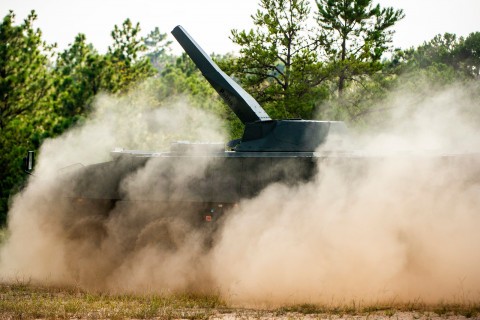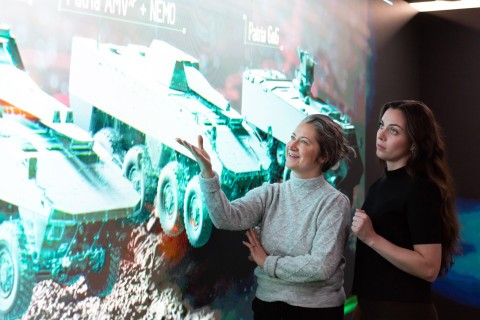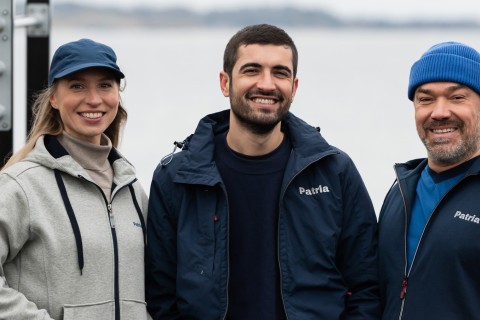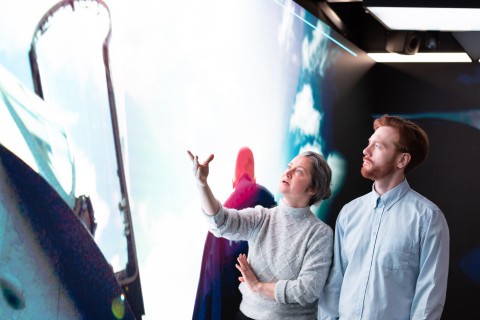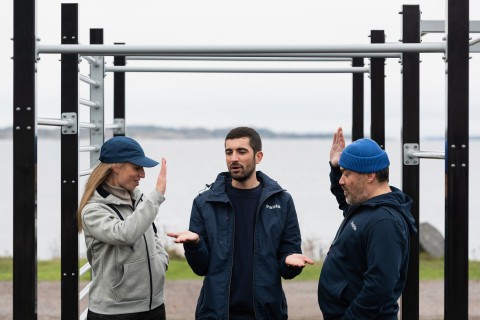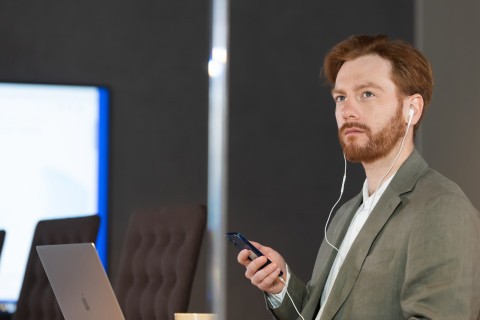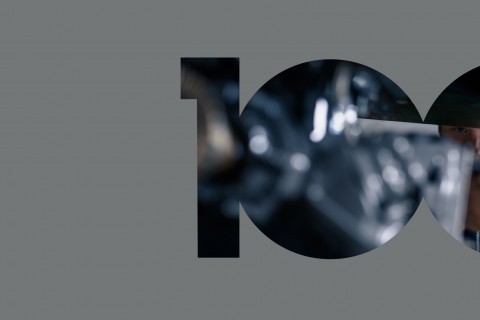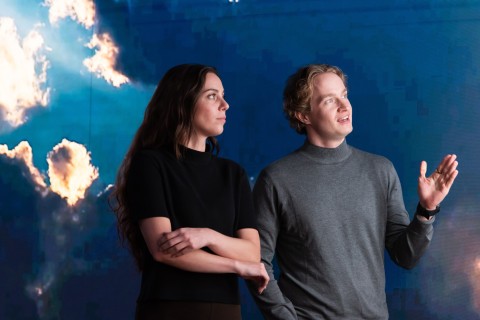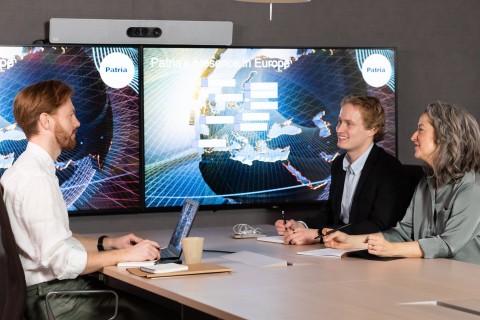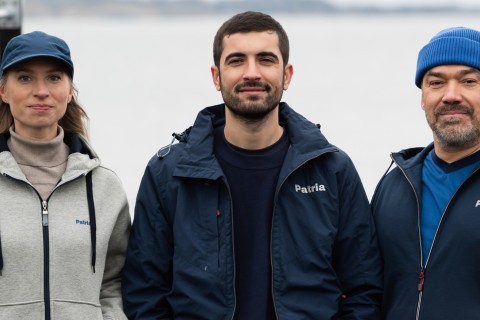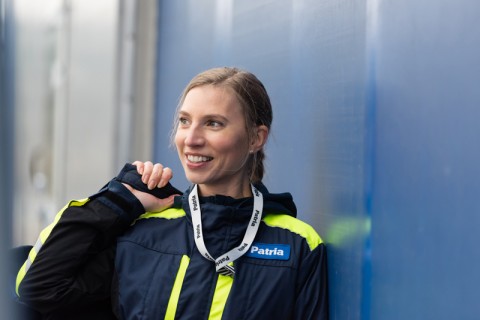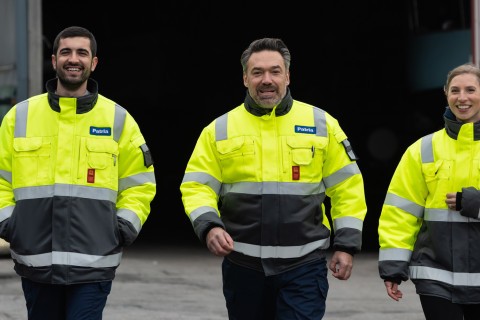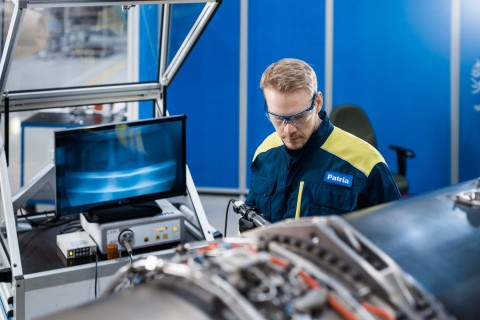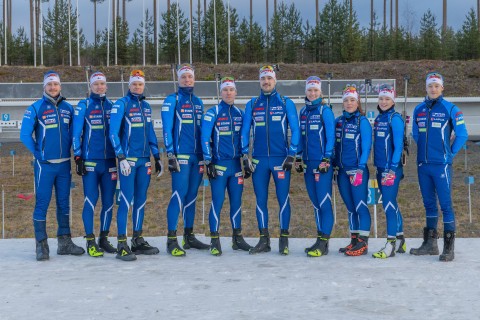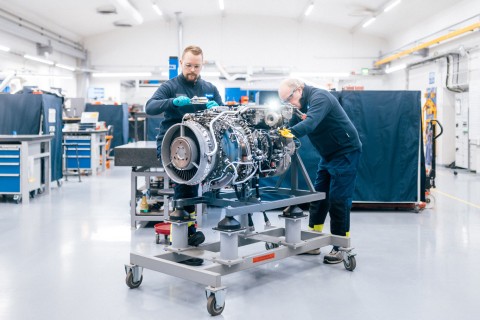
30.4.2019
Jouni Malinen moved to Tampere in 1999 to study, and ended up finding a job there as well. Although originally from Savonia, Eastern Finland, Malinen now calls Tampere home and still works there, currently for Patria as the product group manager for PCL Systems.
Malinen is living his busy midlife years in the Muotiala neighbourhood of Tampere, and his daily routines revolve around his family and children’s athletic hobbies. His leisure time involves playing sports such as floorball and badminton with friends. Running and biking to work completes his weekly exercise. He also has to dedicate a few hours to his duties as chairman of his apartment building’s board. So, it’s no wonder that the family schedule mostly revolves around weekly paper calendars. “Every Sunday we write down all of our activities and appointments for the next week. That way both adults and children can try to work out where they need to be and when. Routines in work supports my spare time, as scheduling plays an important role in both,” says Malinen. By work, Malinen means being the product group manager for PCL (Passive Coherent Location) Systems at Patria Systems. This involves developing products related to passive sensor systems (MUSCL) and data transfer in unmanned aircraft (CANDL). A wide variety of research projects are also carried out in this product group. “This product group employs more than 30 top specialists whose work encompasses all areas of R&D from hardware design to software design, algorithm development to integration, and project management,” Malinen adds.
Another route to the top
Although Malinen has put down roots in Pirkanmaa, he went to school in Pieksämäki, which he describes as ‘the epitome of Savonia-ness’. In 1999, he moved to Hervanta to study at Tampere University of Technology. There had been no need to take any entrance exams, as his matriculation grades in maths and science had been that good. “As soon as I’d completed my second year at university, I began working on signal processing projects. The topic for my master’s thesis involved point source detection in video images. Both my work and studies were more related to automatic measurements and decisions made from images or video,” says Malinen. Eventually, the temporary nature of university employment contracts and the constant worrying over their renewal became unsustainable for the self-respecting Malinen. When a workmate transferred to Patria, Malinen decided that postgraduate studies were not the only route to the top. “I joined Patria in 2005 as a software designer in Halli. I was responsible for implementing mathematical algorithms for coordinate transformations and straight-line intersections, along with visualising their density functions on a map,” he says.
New expertise via recruitment
In early 2006, Malinen transferred to radar research group in Tampere. Although he was not initially that familiar with radar, he became so through his participation in Airforce projects to implement, lead and report on radar analyses, and also to train people in radar technology, first as a research engineer and later as a lead project manager. “This was a great time. I noticed that you don’t find experts in radar technology on every street corner. I spent almost ten years working with radar analysis, after which I became a project manager in passive intelligence receiver (ARIS) development and customer projects. In spring 2018, I left this position to lead the product group,” says Malinen. Malinen has recently been participating in recruitment. In this role, he has seen how Patria is able to offer positions to a wide variety of people. When you find the right spot for a top talent, you can move the pieces around in multiple dimensions. This enables new employees to find a good starting position and existing employees to enjoy positive changes. “I’ve worked on a variety of tasks with top talents. And they haven’t just been brief, passing encounters – at every phase of my career I’ve made new friends with whom I can seize fresh opportunities and dive into challenging problems again and again. No single employee or manager wears a hero’s cape – instead everyone gets to shine in their own area of expertise.”
What did you like about the article?
Thank you for your opinion! You can share the article on social media using the buttons below:
